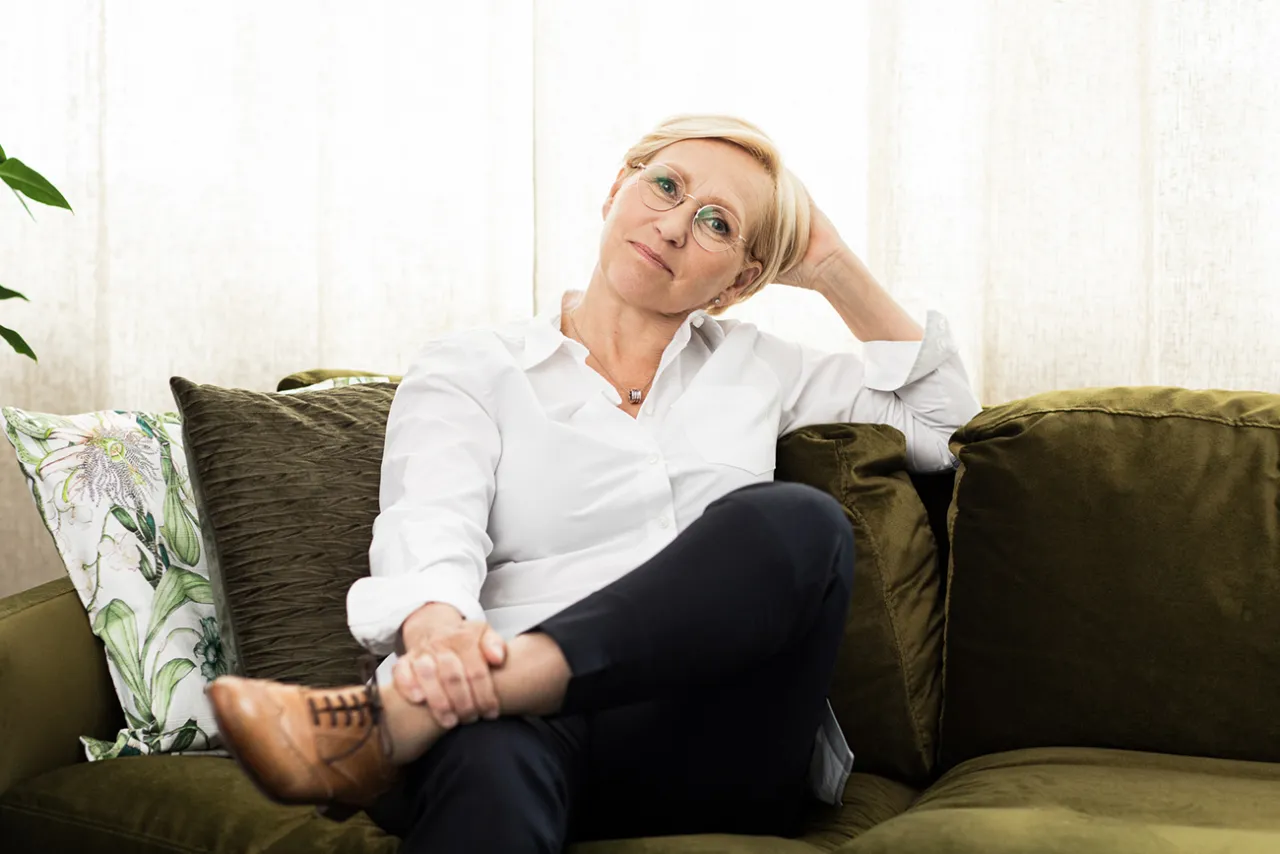Unfazed by the corona crisis, this circular economy company strengthens its position via an acquisition

The management of TouchPoint, a manufacturer or ecological workwear, is not afraid of taking bold steps, as evidenced by their completion of a corporate acquisition at the height of the corona crisis. TouchPoint acquired Domino Workwear, a Tampere-based company with a larger turnover than TouchPoint. Funding of the acquisition utilised Finnvera’s Growth Loan.
TouchPoint’s CEO Outi Luukko is happy that the investment was not postponed due to corona.
"I like to set my sights on the future. Domino was a significant acquisition for us and required financing arrangements. TouchPoint’s strategy is based on both organic growth and growth via acquisitions. Although corona introduces a slight degree of uncertainty to the current growth, we have the ambitious goal of increasing our turnover to EUR 30 million over the next few years", says Luukko.
According to Luukko, Domino’s strength is in production and logistics. Domino manufactures workwear mostly for large corporates. The Finnish Defence Forces is one of the company’s major contract customers.
As for TouchPoint, it is strongly committed to ecological workwear and circular economy. The company manufactures workwear out of recycled materials that use already existing raw materials.
"The acquisition was actually an evolutionary move. We had been cooperating for a long time and learned to know each other. The companies are different enough. There will always be demand for workwear, and environmental values have become a key topic of discussion lately", says Luukko.
A Growth Loan made the acquisition possible
A few years ago, the Circular Economy fund of Taaleri, a wealth management company, became the main owner of TouchPoint, while Luukko remained the largest private individual owner.
The financing arrangements needed for the acquisition to succeed required negotiations between the owners, the bank and Finnvera.
"External financing is critical in acquisitions like these, and the transaction would not have been possible without partners. Fortunately, cooperation enabled us to get the financing in these difficult times. First, we needed a Growth Loan from Finnvera to strengthen our equity", describes Luukko.
Growth Loan is a junior loan, comparable to the company’s equity. Growth Loan brings the company’s equity ratio to a level that enables a bank to be engaged as a provider of financing.
For example, financing of EUR two million can be arranged by having 20 per cent of it internally financed and 30 per cent covered by a Growth Loan. The remainder can then be financed by a bank loan.
One of the strengths of the loan is its lack of collateral.
Finnvera’s Finance Manager Esko Huhta believes that the popularity of financing solutions that strengthen a company’s equity will increase in the near future. Corona has worsened the balance sheets of companies.
"It is great to see companies engaging in profitable business and creating jobs. Circular economy in particular is an industry of the future. TouchPoint’s strategic focus is in growth, internationalisation and acquisitions. We are happy to participate in projects like these", says Huhta.
A new processing facility in the works
Luukko and TouchPoint have several irons in the fire along with the acquisition.
The company is preparing its internationalisation strategy and the preparations for entering the US market had progressed far before the corona crisis emerged.
In addition to the internationalisation plans, TouchPoint is a main owner in Rester, a company that is building a circular economy facility in Paimio. Scheduled to complete next year, the facility will refine discarded textiles into recycled fibre, i.e. new raw material.
The value of the investment is millions of euros. Finnvera is the guarantor of the facility project.
"The textile industry is undergoing a transformation since the use of fibres is growing relentlessly. The investment is about resource wisdom and responsibility. We hope that discarded textiles are recycled responsibly", states Luukko.
According to her, the plant being constructed in Paimio will be the first of its kind in Scandinavia. Rester concentrates on textiles discarded by companies. The capacity of the processing lines is six million kilos per year. The facility will also have a subtenant, Lounais-Suomen Jätehuolto, a waste management company that processes consumer materials.
"The demand is international. It looks like we could get more incoming material that we can process", estimates Luukko.
She also participates in Finnvera’s committee for SMEs. Luukko finds her work valuable.
"My role is to inform Finnvera of the needs of businesses, including the pitfalls that entrepreneurs face. On the other hand, I can communicate Finnvera’s message to my stakeholders", she says.
